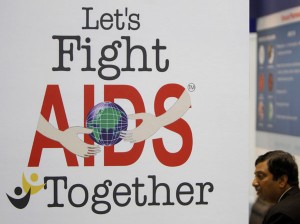MANILA, Philippines—The Department of Health (DOH) is seriously pushing for the amendment of Republic Act 8504 or the Philippine AIDS Prevention and Control Act of 1998 in order to allow the implementation of mandatory human immunodeficiency virus (HIV) screening, particularly for high-risk groups.
In a press briefing, Dr. Lyndon Lee, spokesman of the Department of Health (DOH), clarified that the mandatory HIV screening they have been pushing would not be for the general public.
“There are talks going around that mandatory HIV screening means requiring all Filipinos to submit themselves to test, we don’t mean it that way,” he said.
The DOH said it has been mulling mandatory screening by health providers for patients who may be suspected to have HIV infection based on a risk-based assessment.
Among the high-risk groups identified by the DOH as prone to AIDS (Acquired Immune Deficiency Syndrome) and HIV are female sex workers, males having sex with males (MSMs), injecting drug users (IDUs), those who undergo surgery or operation, and pregnant women.
Lee Suy cited in particular the case of people who undergo surgery or operation.
“A person who goes under the knife is subjected to a very stressful situation and his or her immune system is down after the operation and that’s when secondary infections come in. What if the patient is positive for HIV/AIDS? The patient’s recovery will not be as fast and as good as compared to a patient not suffering from the disease. So by knowing the status of the patient, his physician will be guided regarding certain measures that can be done to help the patient. That is what we actually mean by mandatory drug testing,” Lee Suy explained.
“But in due time, we may explore other groups or certain high-risk population that we may also require to undergo mandatory HIV test,” he said.
According to Lee Suy, the current AIDS law prohibits HIV testing is when they are used as preconditions to “employment, admission to educational institutions, exercise of freedoms of abode, entry or continues stay in the country, or right to travel, or provision of medical services.”
“The DOH/Philippine National AIDS Council continues to monitor such discriminatory acts and encourages all concerned to report such acts so that they will be appropriately addressed,” he said.
The DOH official also said no definite plans have been made to implement the mandatory testing.
“These are all part of the exploratory phase, no clear guidelines, nothing definite yet whether it can be implemented or not. But of course, it would be better if it is implemented to improve the way we approach our patients,” Lee Suy said.
He said they have not come out with any document endorsing the mandatory testing for certain people although the DOH HIV/AIDS unit and the Philippine National AIDS Council (PNAC) have started discussing the matter with some lawmakers.
Lee Suy said the DOH has been looking forward to amending the AIDS law to improve services to HIV/ADS patients.
“We want a wider target to avail of the services,” he said. “The law was passed in 1989. Our knowledge of HIV AIDS at the time was not as wide as our knowledge now. We are much more aware of the HIV/AIDS now.”
From 1984 until March this year, there are already 17,948 HIV cases recorded in the country.
RELATED STORIES
HIV cases rose 43% to 486 in February; 16 AIDS deaths reported — DOH
Northern Mindanao now HIV-AIDS hot spot
Bishop says condoms not effective against HIV/AIDS
